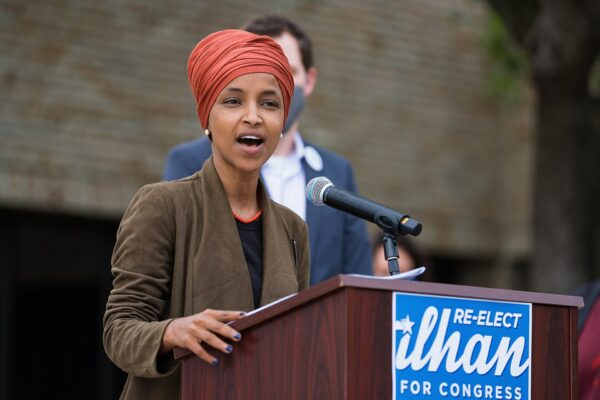Democratic strategist James Carville has reportedly now aligned himself with a wave of criticism directed at Representative Ilhan Omar (D-MN), particularly regarding her controversial remarks made during a 2018 interview.
These comments, which have resurfaced in the wake of recent events, suggest that the United States should be “more fearful of white men,” linking them to significant violence in the country.
This statement has ignited a firestorm of backlash, particularly from pro-Trump influencers who have amplified the message on social media.
In that interview with Al Jazeera, Omar argued for the need to profile and monitor white men as a means of combating their radicalization, a sentiment that has been met with outrage from various political circles.
Carville, a prominent figure within the Democratic Party known for his blunt assessments, voiced his disapproval at the Sir Harry Evans Investigative Journalism Summit held in London.
He characterized Omar’s remarks as problematic and stated that she was “more trouble than she’s worth.”
Carville emphasized the electoral implications of her statements, pointing out that approximately 69% of voters are white, with nearly half being male.
He questioned the strategic thinking behind her comments, suggesting that they could alienate a significant portion of the electorate. “That’s a lot of pissed-off voters,” he noted, indicating that such remarks could harm the Democratic Party’s standing among white male constituents.
In response to the mounting criticism, Omar defended her position by referencing data from the Anti-Defamation League, which reports that a substantial percentage of extremist-related murders are committed by white supremacists.
She accused her detractors, including Vice President JD Vance, of employing a bad-faith smear campaign against her.
Vance had labeled her language as “genocidal,” further escalating the tensions surrounding her remarks and highlighting the divisive nature of political discourse in the current climate.
Carville’s sharp critique signals a potential rift within the Democratic Party, raising critical questions about the party’s direction and the level of acceptance for diverse viewpoints among its members.
As the political landscape continues to evolve, this situation underscores the challenges lawmakers face when navigating sensitive subjects such as race, violence, and accountability, all while striving to maintain party cohesion.
The ongoing debate not only sheds light on individual political careers but also reflects broader ideological battles between the two major parties in the United States.
As political figures grapple with how to address complex issues, the implications of this dispute could resonate far beyond the immediate context, influencing the dynamics of both the Democratic and Republican parties.
The controversy surrounding Omar’s comments serves as a reminder of the delicate balance politicians must strike when discussing contentious topics in an increasingly polarized environment.
As discussions continue and public opinion shifts, the ramifications of this incident may significantly impact future electoral strategies and party unity amongst Democrats moving forward.
[READ MORE: Florida Senator Passes Out In Middle of Speech]








